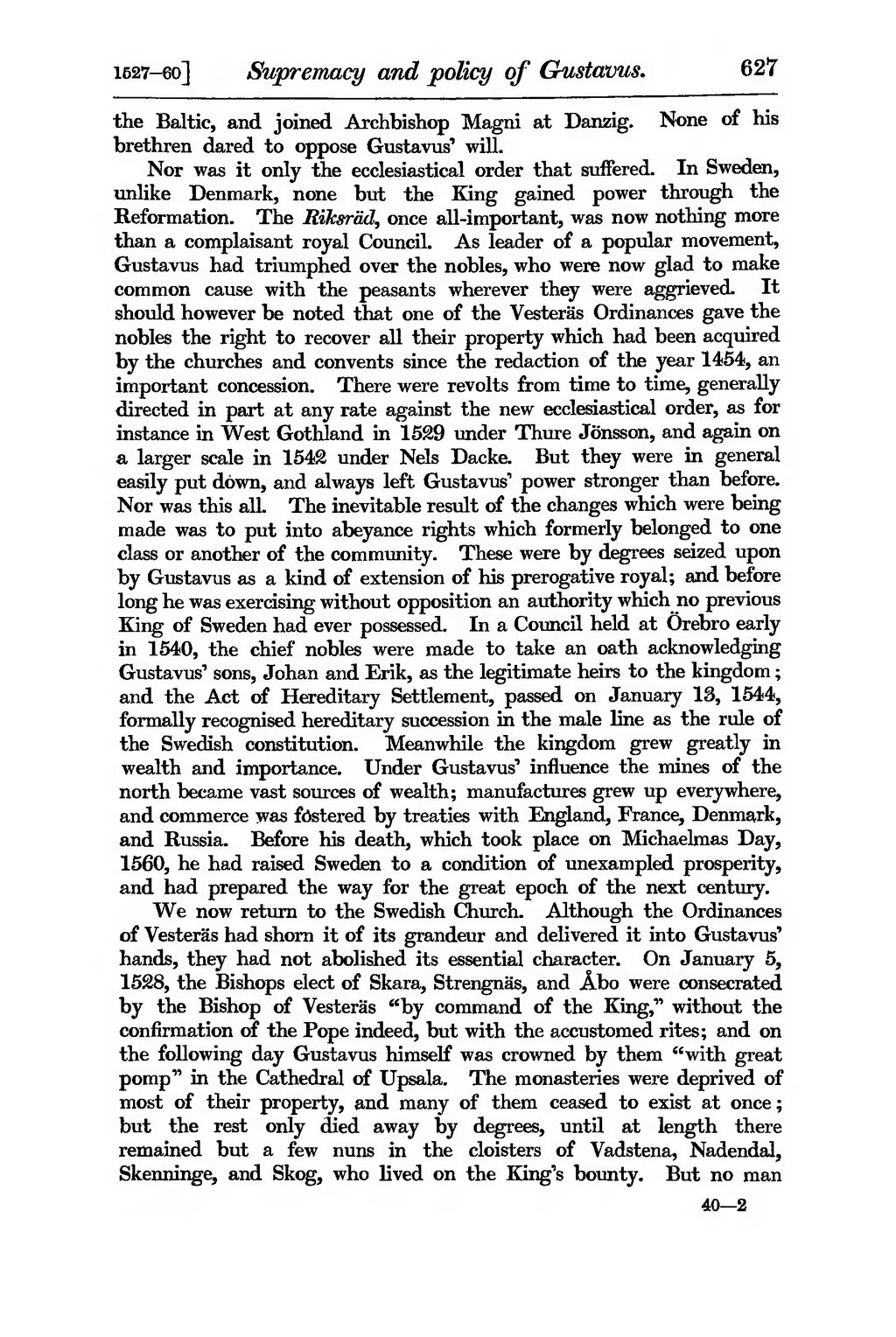the Baltic, and joined Archbishop Magni at Danzig. None of his brethren dared to oppose Gustavus' will.
Nor was it only the ecclesiastical order that suffered. In Sweden, unlike Denmark, none but the King gained power through the Reformation. The Riksräd, once all-important, was now nothing more than a complaisant royal Council. As leader of a popular movement, Gustavus had triumphed over the nobles, who were now glad to make common cause with the peasants wherever they were aggrieved. It should however be noted that one of the Vesteräs Ordinances gave the nobles the right to recover all their property which had been acquired by the churches and convents since the redaction of the year 1454, an important concession. There were revolts from time to time, generally directed in part at any rate against the new ecclesiastical order, as for instance in West Gothland in 1529 under Thure Jönsson, and again on a larger scale in 1542 under Nels Dacke. But they were in general easily put down, and always left Gustavus' power stronger than before. Nor was this all. The inevitable result of the changes which were being made was to put into abeyance rights which formerly belonged to one class or another of the community. These were by degrees seized upon by Gustavus as a kind of extension of his prerogative royal; and before long he was exercising without opposition an authority which no previous King of Sweden had ever possessed. In a Council held at Orebro early in 1540, the chief nobles were made to take an oath acknowledging Gustavus' sons, Johan and Erik, as the legitimate heirs to the kingdom; and the Act of Hereditary Settlement, passed on January 13, 1544, formally recognised hereditary succession in the male line as the rule of the Swedish constitution. Meanwhile the kingdom grew greatly in wealth and importance. Under Gustavus' influence the mines of the north became vast sources of wealth; manufactures grew up everywhere, and commerce was fostered by treaties with England, France, Denmark, and Russia. Before his death, which took place on Michaelmas Day, 1560, he had raised Sweden to a condition of unexampled prosperity, and had prepared the way for the great epoch of the next century.
We now return to the Swedish Church. Although the Ordinances of Vesteräs had shorn it of its grandeur and delivered it into Gustavus' hands, they had not abolished its essential character. On January 5, 1528, the Bishops elect of Skara, Strengnäs, and Âbo were consecrated by the Bishop of Vesteräs "by command of the King," without the confirmation of the Pope indeed, but with the accustomed rites; and on the following day Gustavus himself was crowned by them "with great pomp" in the Cathedral of Upsala. The monasteries were deprived of most of their property, and many of them ceased to exist at once; but the rest only died away by degrees, until at length there remained but a few nuns in the cloisters of Vadstena, Nadendal, Skenninge, and Skog, who lived on the King's bounty. But no man
